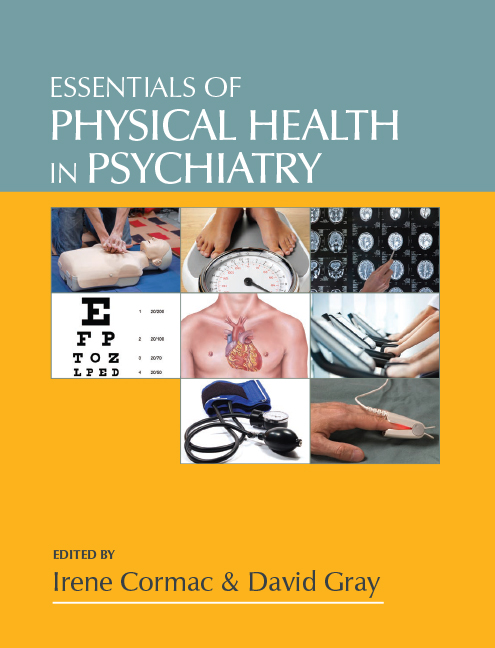Summary
There is no doubt that physical and mental health should not be separated, as each affects the other. In medicine, however, mental health is often seen as the prerogative of psychiatrists and psychiatrists themselves are often ready to pass on the physical care of their patients to colleagues in other specialties. This creates further divisions between psychiatrists and physicians and surgeons.
Psychiatry is a medical specialty and psychiatrists spend a considerable period in their training learning the fundamentals of medicine. It is imperative that psychiatrists as part of their professional role and responsibility are aware of medical issues and are able to interpret basic medical investigations; equally, they must be aware of where they should seek help and, more importantly, when. Physical and mental health complement and influence each other and it is essential that all doctors are aware of these links. The mind–body dualism has had an unfortunate effect on medicine, and there appears to be an assumption that these two components of health do not communicate with each other. To understand the distress patients experience and how it affects their physical health and social functioning, a holistic approach is needed for assessment as well as management plans. Patients may use physical or psychological idioms to express their distress, depending on their socioeconomic, educational, cultural and social mores. That does not mean that one way of expressing distress is inferior to the other.
This volume brings together authors who are committed to reducing this dichotomy. The editors are to be congratulated for putting together such an expert team to collaborate on this vital topic. My fervent hope is that this book will encourage not only trainee psychiatrists but other mental health professionals as well as more senior colleagues to revisit their skills.
- Type
- Chapter
- Information
- Essentials of Physical Health in Psychiatry , pp. viiiPublisher: Royal College of PsychiatristsFirst published in: 2017

